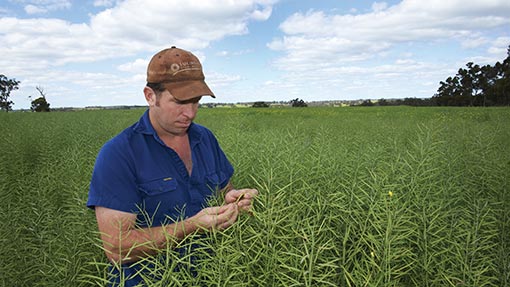Farmer Focus: Western Australian grain railways lost

Recently, 550km of railway in Western Australia was shut down due to poor or no maintenance over the past 20 years.
While this might seem a lot in the UK, in WA it accounts for about 6% of the grain transport in a good year and about 3% in an average year. The cost of restoring the lines will be about $111m.
There will now be on average 600,000t of grain transported on local roads, or 12,000 50t road trains passing through local towns. It’s the last figure that has got many farmers concerned.
Those trucks will be returning empty, so it is in fact 24,000 extra truck movements. Will this make local roads more dangerous? It’s very easy to get caught up in the emotions, but there are some cold, hard numbers driving the decision.
Figures show rail is one of the most efficient means of transport. So why are rail lines being shut down all over the world and replaced with road transport? Maintenance is the reason.
When the lines where built 50-100 years ago, labour, steel and wood were plentiful and cheap. That’s not the case now.
Read more from all our Farmer Focus writers
Population demographics are also changing – a more urban society like to see its tax money spent close to home and when people do venture out of the city limits, they like new roads to drive on.
But there’s a hidden cost in all of this – just like the rail infrastructure required maintenance, so will the roads, and in a state as big as WA, there are a lot of roads to maintain.
So who is going to bear the cost of this maintenance? I have a suspicion that it will be the farmer in the end via a levy on heavy haulage that gets passed down.
When you visit South America, which doesn’t have rail networks and where all transport is via road, there are piles of rotting grain everywhere because it was unable to be moved in time due to poor road conditions. You soon appreciate what we have here and worry about what we may yet become.
Rob Warburton farms 3,000ha with his wife Jen and two daughters in Kojonup, below Perth, in Western Australia. Cropping includes wheat, barley and oilseed rape. Wildflower seed is grown for retail. Merino sheep are reared for wool and meat

